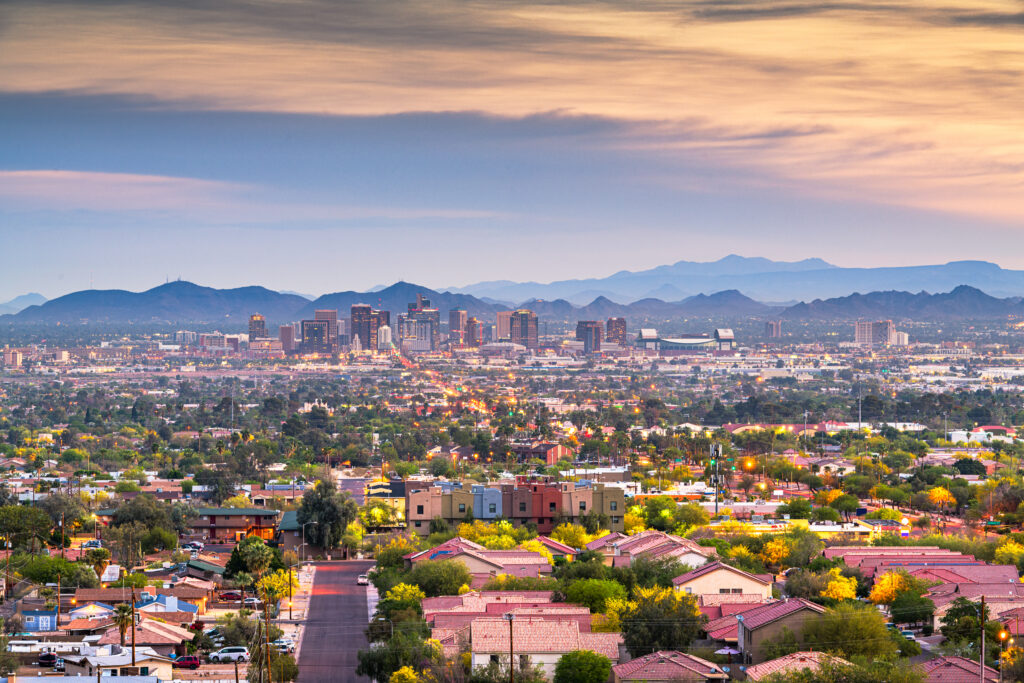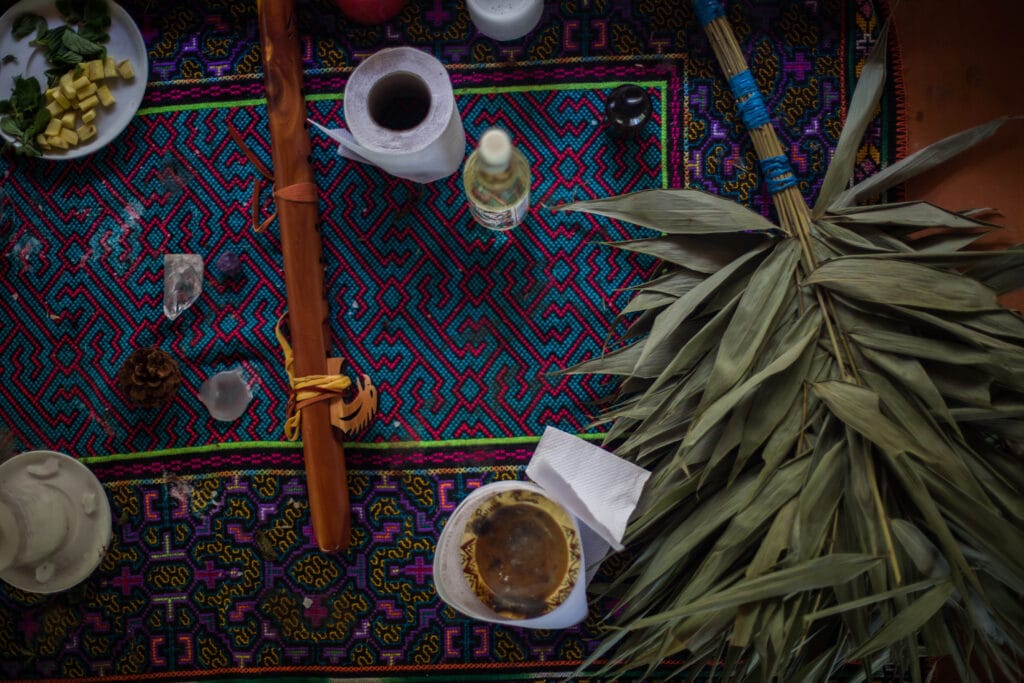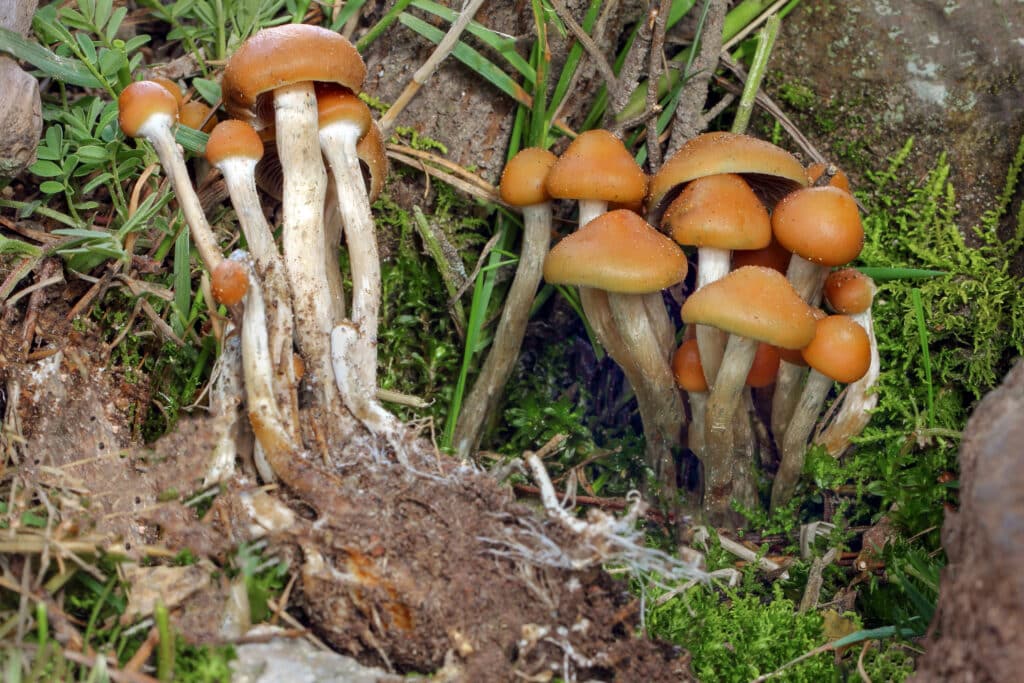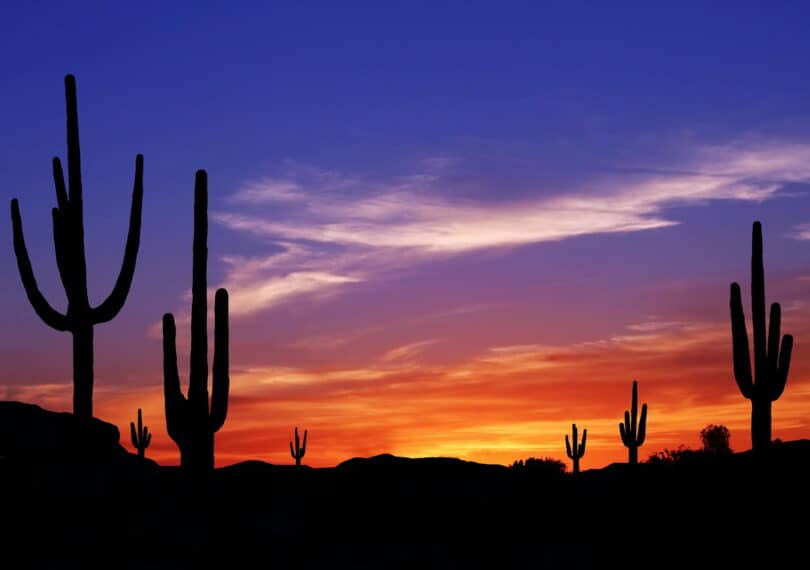Although certainly not common or mainstream quite yet, psychedelic churches which use some type of hallucinogenic substance as a sacrament have grown in popularity over the last few years, especially as research emerges pointing to the many benefits of using these drugs. The churches have faced scrutiny and harassment from police and law makers, but thanks to a renewed interest in psychedelics and some recent revisions to the Religious Freedom Restoration Act, many of the churches that were raided are suing their states of residence – and winning!
Check out the latest win from Arizona, brush up on the most current laws on cannabis and psychedelics in the state, and learn more about the prevalence of psychedelic churches in the US.
What’s the news?
Before getting into the recent hearing, let’s start with a little bit of background information. Three years ago, law enforcement agents in Phoenix, Arizona, raided the residence of Clay Villanueva, a local pastor who was known for facilitating ayahuasca ceremonies. Federal agents arrest him on conspiracy charges after finding a surplus of ayahuasca, psilocybin mushrooms, and cannabis.

Villanueva filed a lawsuit against the DEA, which has recently been approved for trial. Villanueva, who was on the board of directors for the North American Association of Visionary Churches, passed away on April 1st, 2022. However, his church Vine of Light, is one of two churches who got some good news regarding their court cases over legal status. Several other churches were part of the lawsuit, but only Vine of Light and another one in Tucson, the Arizona Yage Assembly (AYA), can proceed to trial.
Back in March, U.S. District Court Judge Susan Bolton allowed a claim by the churches rejecting the DEA’s requests to dismiss the case. And a few weeks ago, on May 4th, District Court Judge Roslyn Silver ruled that the case could move forward to trial. They were granted religious exemptions under the Religious Freedom Restoration Act.
The next hearing is scheduled for June 6th, but I wasn’t able to find any new information about it so it may have been postponed. But if the churches win their case, they would be immune to federal prosecution and can go on conducting spiritual ceremonies that incorporate psychedelic drugs, without fear of arrest.
All about ayahuasca
Ayahuasca is a psychoactive brew made by combining the Banisteriopsis caapi vine with the leaves from the Psychotria viridis shrub, and boiling or heating for a prolonged period of time. It was originally used for spiritual and ceremonial purposes by tribes in the Amazon basin, but over the years, it’s grown in popularity throughout the US and other countries as well.
Although it’s still used spiritually – as many churches continue to keep it as their sacrament – ayahuasca is also utilized for its medicinal properties, particularly fighting depression and drug addiction. Recent studies show that, when used correctly, Ayahuasca can reduce dependency on certain substances; an incredibly important benefit when we consider the rate of addiction and overdose deaths in the United States alone.
Despite all the emerging research making headlines, the active ingredient in ayahuasca, N-Dimethyltryptamine (DMT), remains illegal. According to the controlled substances act, DMT is classified as a schedule 1 narcotic, meaning it has “no currently accepted medical use and a high potential for abuse”. We know this is not true, but that’s the law.
Luckily, there is an exemption in the law that allows for religious use of ayahuasca, as per the Religious Freedom Restoration Act, a federal law enacted in 1993 that “ensures that interests in religious freedom are protected.” A landmark 2006 Supreme Court decision to allow ayahuasca as a sacrament, brought by O Centro Espírita Beneficente União do Vegetal church (based in Brazil, with a branch in New Mexico), has been cited in over 1,200 judicial actions and law review articles to date.
Psychedelic churches popping up in the US
A rising demand for ayahuasca and other natural entheogens has led to an increase in churches and retreat centers that facilitate spiritual psychedelic experiences. Many of these churches are fighting legal battles, and many are pointing to the aforementioned case in New Mexico in order to protect their right to use hallucinogens in their ceremonies.

Some are coming out of victorious, like a church in Oregon that sued for ayahuasca use and won. Others, unfortunately, are facing long, drawn out court battles, like Soul Quest Church of Mother Earth from Florida, who is hoping an appeal court can revive their challenging of a DEA ruling that prohibits their use of ayahuasca tea as a sacrament.
“In every major city in the United States, every weekend, there’s multiple ayahuasca ceremonies. It’s not just a twice-a-year thing,” said Sean McAllister, who represents an Arizona church in a lawsuit against the federal government after its ayahuasca from Peru was seized at the port of Los Angeles.
But the popularity of hallucinogens is a double-edged sword. On one hand, it has led to more research and some loosened restrictions on certain substances (at an incredibly slow rate, but it’s better than never). On the other hand, it has also led to some increased scrutiny about the safety of the drugs, as well as the churches and retreats themselves. Many churches felt it was more effort than it was worth, and have chosen to stop operating entirely over fears of prosecution.
What’s legal in Arizona?
As far as drugs go, not very much is legal in Arizona. The state has both medical and recreational cannabis, the latter of which was legalized in November 2020. While most people believe that medical has only been available for the past few years (because that’s when Arizona decided to expand their medical program), but the law to allow cannabis for certain therapeutic reasons passed back in 1996, shortly after California became the first state to do so. There was much debate as to whether the law was invalid based on a technicality.
Ketamine is also somewhat legal in Arizona, but only for medical use. Much like the rest of the country, you can find several ketamine treatment centers throughout the state, although the extremely high cost of treatment is prohibitive for many people. In recreational contexts, ketamine is illegal and considered a schedule 1 narcotic.
Completely illegal at the moment are LSD and MDMA, both of which are considered “dangerous substances” resulting in penalties of up to four years for a first offence of simple possession, and up to fifteen years for repeat offenders. This applies to both of the aforementioned substances.
Psilocybin mushrooms are illegal as well, but they do grow naturally in various parts of the state. The most common species of shrooms in Arizona is Psilocybe aztecorum. These color of these mushrooms ranges from dark brown to light yellow, depending on light and hydration. Like most states, magic mushroom spores are legal, because only the fruiting bodies contain psilocybin.

Additionally, there is a bill in the works that would ease regulations on psilocybin, House Bill 2486, which has bipartisan support. The bill seeks to provide $30 million to help learn more about how mushrooms can potentially assist with conditions such as PTSD, depression, and anxiety. “I’ve seen first-hand how extraordinary psilocybin and other psychedelics can be,” VivaMed CEO and Founder said Kendric Speagle, CEO and Founder of VivaMed. Speagle says he’s always looking for new, effective treatment options.
As a Navy veteran, he also knows just how limited current treatment options have been. “There’s a real urgency to come up and develop better therapeutics,” he said. “And we think psychedelics have tremendous promise for helping vets that can’t find relief in other ways.”
Final thoughts
Although the Arizona case has yet to reach a final ruling, because of the very cut and dry text in the Religious Freedom Restoration Act, it’s expected that they will win. And a win for spiritual hallucinogenic use is a win for all of us!
Hello readers. We’re happy to have you with us at Cannadelics.com; a news source here to bring you the best in independent reporting for the growing cannabis and hallucinogen fields. Join us frequently to stay on top of everything, and subscribe to our Cannadelics Weekly Newsletter, for updates straight to your email. Check out some awesome promos for cannabis buds, smoking devices and equipment like vapes, edibles, cannabinoid compounds, amanita mushroom products, and a whole bunch more. Let’s all get stoned together!









